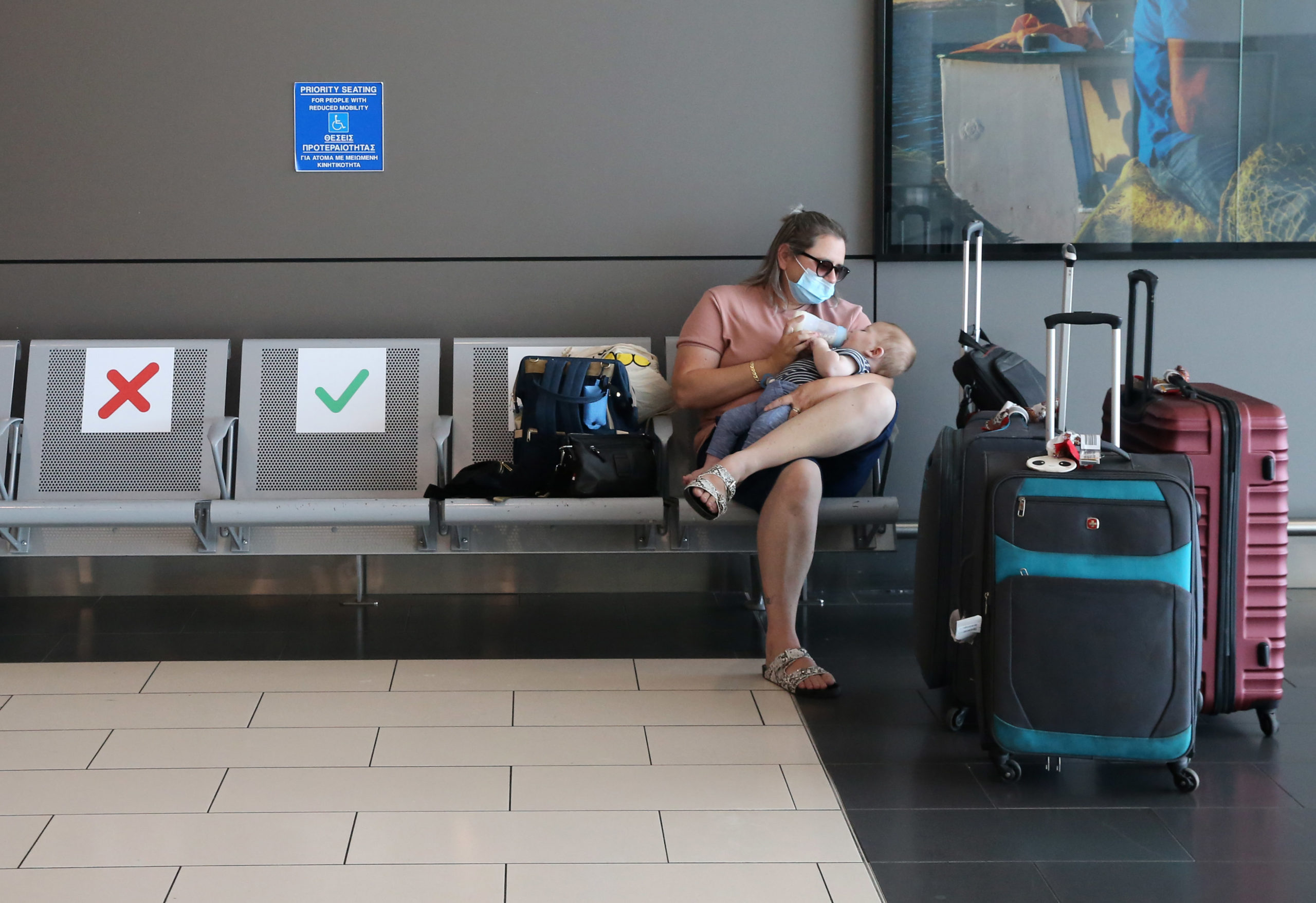Concerned over the possibility of the virulent South African strain of coronavirus entering Cyprus, health experts are advising the government to step up screenings at airports.
Dr Peter Karayiannis, Professor of Virology at the University of Nicosia Medical School and advisor to the government, said although there are no direct travel links with South Africa, authorities must be on their toes as passengers carrying the new strain could come from anywhere.
Random testing is conducted at airports while most arrivals need a negative COVID-19 test to enter while a quarantine regime is in place for passengers from the UK.
Karayiannis argued that screening at the airports is crucial, as the variant could find its way in from any other country.
“Moreover, it has been spotted in Europe. We have heard that it has recently been detected in Thessaloniki,” he told the Cyprus News Agency.
“The only protective measure is what is being done at the airports of Cyprus now with close monitoring, testing arrivals, quarantining those that must be quarantined, so as to avoid importing the virus.”
The South African variant contains a mutation known as N501Y which, like the new UK variant, is believed to make the virus more contagious than older variants.
It also contains other mutations of concern, including E484K and K417N.
These two mutations are thought to explain why the South African variant appears to be better able to evade neutralising antibody responses by the body.
As with the original version, the risk is highest for people who are elderly or have significant underlying health conditions.
But there are concerns it can spread more readily and vaccines may not work quite as well against it.
Karayiannis explained that the South African strain is somewhat different from the English strain.
“These mutations concern the spike protein, which is on the surface of the cell of the virus and responsible for binding to the body cells and transferring the virus into the cell for its multiplication.”
He said some of these mutations may make this binding easier and more efficient.
“That is why the most widespread transmission of these two mutations is observed.”
One of the reasons why scientists are particularly concerned over the South African strain is that they know far less about it than the UK variant.
Asked whether the South African variant was more deadly, Karayiannis said this has yet to be determined, but it does not appear to be the case.
On how widespread the UK variant is in Cyprus, Karayiannis said that transmission seems to have been contained as just one case appeared in the 25 samples analysed from those who acquired COVID-19 locally.
Commenting on coronavirus cases dropping and stabilising at around 100, Karayiannis said that scientists hope to see numbers drop even further.
“We have managed to reduce the number of cases from 900 to approximately 100. This took six to seven weeks with the two phases of restrictions, one being a lockdown”.
Hospital admissions falling with a decrease in the number of patients in ICUs.










